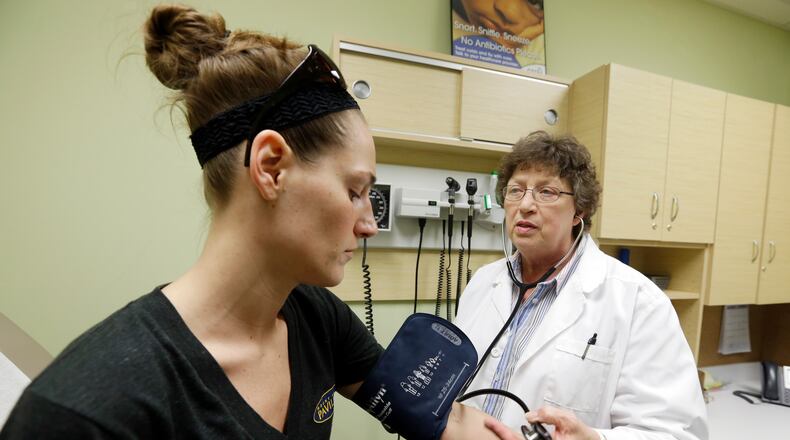During their 30s, women's bodies begin to change, so consistent doctor's visits and figuring out the right questions to ask while there is imperative.
Proactive conversations with your health professional, lifestyle changes and monitoring your diet can keep potential health risks at bay for decades to come.
Knowing the right topics to address, however, can be challenging. Here are the top four issues every woman in her 30s should talk to her doctor about to protect their health.
1. Should I be concerned about heart disease?
Heart disease, and not breast cancer, is the no. 1 threat to women's health, although many women do not realize it. According to Everyday Health, more women die from heart disease each year than all other forms of cancer combined. Make sure your doctor is checking your blood pressure, cholesterol, and glucose levels as well as other measures of your cardiovascular health. Talk with your doctor about any family history of heart disease, as well as your current diet and exercise routines, and then ask about your risk and what you can do to protect yourself.
The American Heart Association also has this handy guide for preparing to talk about heart health during your next doctor's visit.
2. Should I be worried about this blemish on my skin?
Your skin is the largest organ on your body, and is your first line of defense against microbes and other nasty germs. It's also the first thing many people notice on someone. It's easy in your 20s to skip the sunscreen, but, by the time women are in their 30s, all those beach vacations start to show.
The American Academy of Dermatology is encouraging women to check themselves and their partners for unusual moles or other blemishes. According to their research, women are nine times more likely than men to spot the unusual moles and blemishes that can be melanoma.
Melanoma is one of the deadliest forms of skin cancer, but has a very high survival rate when caught early. Ask your doctor to look at any unusual blemishes, and they can also take a sample to get tested if they are unsure.
Many women in their 30s also begin to worry about wrinkles, but being proactive now can keep skin looking healthy for years to come. Talk to your doctor about your skin care routine, especially the best broad-spectrum sunscreen to use. UVB rays are the portion of the sun's rays that cause sunburns, while UVA rays are able to reach deeper layers of the skin and can cause premature aging, so using a broad spectrum sunscreen daily is important for maintaining your skin's health. Your doctor can also help you find the best over-the-counter or prescription strength products to keep wrinkles at bay.
3. What screenings do I need in relation to my reproductive system?
Women in their 30s should undergo breast and cervical exams every three years, including a pap smear and HPV (human papillomavirus) test, according to Healthy Women. Some women may need to be screened more often depending on their risk factors, like family history.
Long-term monogamous relationships are not always the norm, so being open and honest with your health care provider about your sexual activity is key. Regular testing for sexually-transmitted infections, as well as HIV, is important for anyone who is sexually active.
4. How are my eyes doing?
Those regular headaches might be more than just stress. It could be related to your sight. Healthy Women recommends that women get at least two exams during their 30s. Individuals with diabetes need to have their eyes checked more often, at least once a year according to Medline Plus. For anyone working in front of a computer all day, your doctor may be able to recommend ways to prevent eye strain and maintain excellent vision.
These four areas are a great starting point for women to start conversations with their doctor about your health. Be honest with your doctor about your risk factors − like diet and lifestyle − and be sure to ask questions if anything your doctor shares with you is unclear. Being proactive about your health in your 30s will keep you healthy for decades to come.
About the Author
Keep Reading
The Latest
Featured



